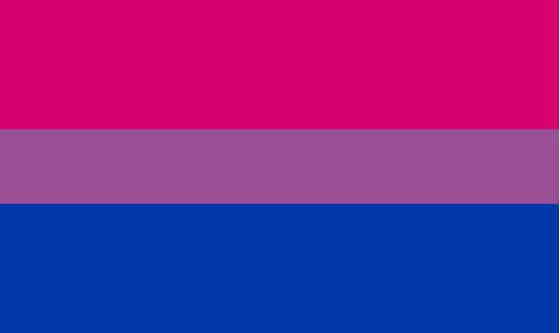
Why Bi Visibility Day is important
Bi-visibility Day is marked by efforts to increase awareness and acceptance of bisexuality. People are also encouraged during this time to be attentive of their bi-phobia, mono-sexism, and bi-erasure.
Every year since 1999, Bi-visibility week which falls between the 16th and 23rd of September has been observed worldwide. It serves as a time to recognize the bisexual community and raise awareness on some of the unique struggles they go through.
Fittingly, GLAAD, the organization that co-founded the Bisexual+ Awareness Week changed its name to accommodate this group even further. Formerly, GLAAD’s acronym stood for “Gay & Lesbian Alliance Against Defamation”, but it has since dropped this description as a way to include bisexual and transgender people in their efforts to support the LGBTQI+ community in its entirety. It is now simply known as GLAAD.
Throughout the years it has become clear that the bisexual community faces what researchers describe as “double discrimination” – from both queer and non-queer community that stems from bi-phobia, mono-sexism, and bi-erasure.
What is bi-phobia?
Bisexuality is defined as a romantic or sexual attraction towards more than one sex or gender. Biphobia is the fear, intolerance or hatred towards bisexuals based on the view that it is not a ‘genuine’ sexual orientation, or because of negative stereotypes that have been associated with bi-sexuality.
Some of these stereotypes are that they are incapable of being monogamous or committed, that they sleep around and can never be satisfied dating just one person. It is also a popular misconception that their bisexuality is a phase that they will eventually get over.
Some of the more common phrases bi people hear when coming out are “It’s just a phase,” “Bi now, gay later” and “You’re just figuring things out.”
The basis of these unfair and false stereotypes is the difficultly both straight and gay/lesbian people have in imagining the capacity to have a valid attraction to more than one gender.
Mono-sexism is not universal
Mono-sexism is the term used to describe a sexual orientation towards only one gender. It is experienced by straight and gay/lesbian people and is assumed to be the ‘norm’. This idea does not allow for the reality that sexual orientation is experienced on a spectrum or a sliding scale e.g. you can find someone of the opposite or same gender sexually attractive and even act on it but be unable to form emotional ties. This is why many people who are not strictly monosexual refer to themselves as ‘queer’ or ‘fluid’.
Effects of Bi-erasure
The treatment of bi-sexuality as impossible or illegitimate invalidates the bisexual label and community. This is what is called bi-erasure; a short form of bisexual erasure which is the act of ignoring, explaining away, or otherwise dismissing bisexuality in culture, media, or history.
It can appear in many forms such as urging a bisexual person to ‘choose’ or assuming when a bisexual person has a partner, the bisexual person is now gay or straight and no longer bisexual. It can also be seen in how society downplays bisexuality in celebrities or prominent person/s.
According to a brief from the Human Rights Campaign, bi+ people face “minority stress,” and are more at risk of self-harming behaviours and attempted suicide than gay, lesbian, or heterosexual adults. It adds that Bi-erasure also increases the risk of mental health issues (like eating disorders) in women, and their quality of life is lower than both lesbian and heterosexual peers.
For bisexual men, the added pressure of toxic masculinity makes it difficult for them to seek and receive proper healthcare. Bisexual men are therefore disproportionately affected by HIV and are at high risk of contracting other sexually transmitted infections according to researchers.
It is for all these reasons that bi-visibility is important. Fully recognizing the legitimacy of bisexuality will make it easier for bisexual individuals to accept themselves and live life as their authentic selves. Bi-visibility can be undertaken by bisexual individuals, bisexual communities, and allies who are not bisexual by first acknowledging our prejudices then moving to dispel them in ourselves and those around us.
You can even start by simply commemorating the 23rd by posting the bisexual flag on your social media in support of the community!
